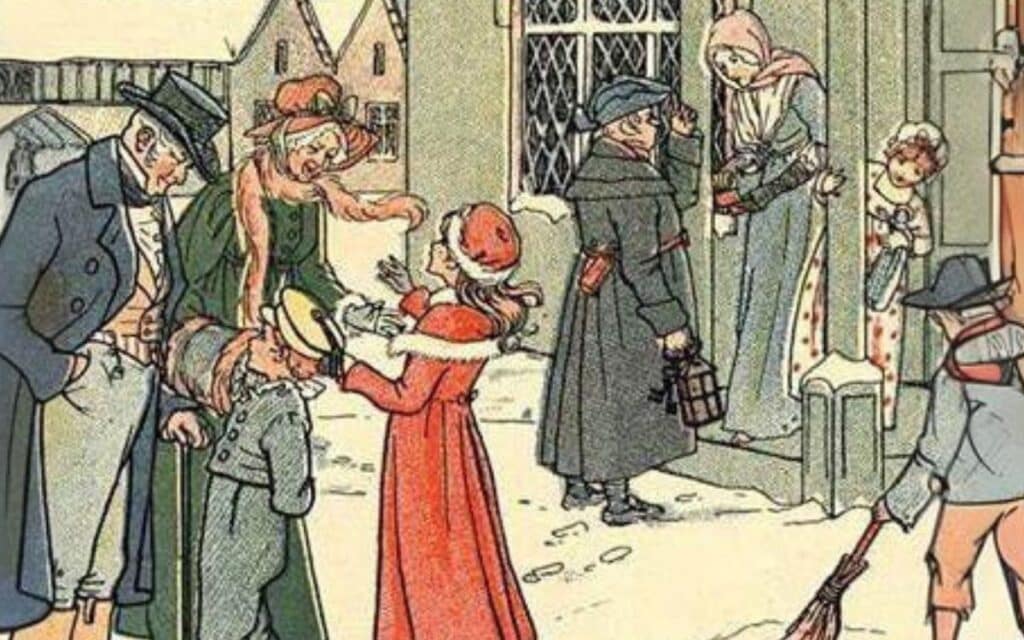Boxing Day isn’t just a day off to eat Christmas leftovers while watching the football. Here are the history and traditions of this traditional day of giving

Most of us now associate Boxing Day with post-Christmas sales, leftover turkey sandwiches, and football. However, the day has much deeper roots in British and Irish culture.
Boxing Day traditions are steeped in history and folklore, ranging from the benevolent to the downright bizarre.
So, why do we celebrate Boxing Day, and what makes it so unique?
The Origins: A Day of Giving and Gratitude
Boxing Day, celebrated on 26 December, has its origins in the Christian feast of St Stephen’s Day, a day to honour the first Christian martyr.
The holiday’s name, however, comes from a different tradition entirely.
Dating back to the Middle Ages, Boxing Day began as a day when the upper classes would gift a “Christmas box” to their servants, tradespeople, and those in need.
These boxes were filled with money, food and small presents, showing appreciation for a year’s worth of service and providing a chance to spread goodwill.
In Britain and Ireland, it was customary for church collection boxes to be opened, with the contents distributed among the poor.
This spirit of charity and community forms the core of the Boxing Day tradition.
What is Wren Day?
The ancient Celtic celebration of Wren Day, also observed on St. Stephen’s Day, reflects this spirit too.
During Wren Day – or Lá an Dreoilín in Irish – communities would “hunt” a wren (thankfully, only symbolically today) and parade it around on a decorated pole.
This peculiar ritual, which dates back centuries, brings people together in a display of unity and festive spirit.
Quirky Traditions and Regional Flavours
Beyond its origins of generosity, Boxing Day is also rich in eccentric customs.
For instance, the Boxing Day Hunt in the UK has been a long-standing tradition.
For generations, hunters, clad in red coats, gathered at dawn to pursue a fox – a controversial practice that continues in some rural areas.
Following the Hunting Act of 2004, which banned traditional fox hunting, the practice shifted to drag hunting, where hounds follow a pre-laid scent trail.
For its supporters, it’s a way of preserving a time-honoured custom, though opinions remain fiercely divided.
Across the Irish Sea, St Stephen’s Day takes on a different hue with the Wren Boys Procession.
Here, young men and women don colourful masks and straw suits, singing and dancing from house to house.
Legend has it that the tradition is tied to the wren’s role in betraying St Stephen, leading to his martyrdom.
Whatever its origins, the procession remains a vibrant, joyous affair, with participants collecting donations for local charities, a fine example of community spirit.
What You Might Not Know About Boxing Day
Despite its rich history and diverse customs, there are still a few surprising facts about Boxing Day that might catch you off guard:
A Not-So-Global Holiday: While Boxing Day is widely celebrated in the UK, Ireland, Canada, Australia, and New Zealand, it remains largely unknown in countries like the USA, which do not officially observe it.
Sales Mania: Many in the UK associate Boxing Day with frenzied shopping, but the tradition of post-Christmas sales actually began in the United States with Black Friday. However, it has since become a staple of the British festive season.
No Fisticuffs Here: Despite the name, Boxing Day has nothing to do with the sport of boxing. The term “boxing” refers to the boxes of gifts and donations given to employees and the less fortunate, not to pugilists.
A Day of Goodwill: In South Africa, Boxing Day is celebrated as the Day of Goodwill, emphasising the holiday’s roots in charitable giving and kindness.
Football Feast: Boxing Day is a red-letter day on the British football calendar. Almost every team plays, turning the day into a feast for football fans and a crucial date for league standings.
So, why does Boxing Day still hold such significance? Beyond the sales and sports, it remains a day dedicated to generosity, community, and reflection.
Whether it’s through quirky customs like the Wren Boys Procession or the enduring tradition of giving, Boxing Day encapsulates the spirit of togetherness that is at the heart of the festive season.
It is a day that reminds us that the magic of Christmas need not end on 25 December, but can linger in the moments we share with others, whether through charity, camaraderie, or simply the joy of a good old-fashioned tradition.
The next time you find yourself enjoying Boxing Day’s quieter moments, take a moment to remember its rich history, its curious traditions, and the warmth it continues to bring to so many lives.
Tell us your Boxing Day traditions in the comments section below!







